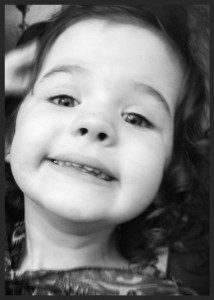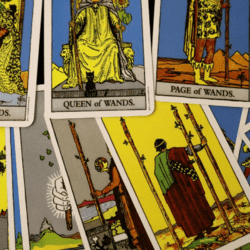Raising my children is the most rewarding and challenging experience that I’ve ever had. I have found inspiration, been brought to tears, experienced moments of pure joy, and been challenged at every milestone. I have named grey hairs after my kids. No other life experience has tossed all of these things at me simultaneously in the same way that parenting has.
There is quite an age difference in my children. With each one, I discovered a unique personality that I was responsible for helping to shape and form, with the goal that each should be happy and well-adjusted, carrying their traditions and values with pride.
With my oldest son, I was very protective. I read the parenting books, attended any meetings that proposed a change to the curriculum in school, and briefly considered feeding him only macaroni and cheese for the rest of his life because he wouldn’t willingly eat anything else. I wrapped him in helmets and pads, layer upon cushiony layer, when he rode a bike or skateboard.

By the time my second son came along five years later, I had relaxed a little. I felt that I could loosen the reins a bit when it came to not parenting “by the book,” and that I could rely more on my confidence as a mother and the natural instincts that came with caring for my children. My daughter is a different story. She is three and was born knowing all of the answers to everything. She’s made it abundantly clear that there is no need for me to be nervous or anxious. Her favorite saying is “Don’t get your eggs in a scramble, I’m okay.” Ha! Did I mention she’s three?
Over time, especially as each the kids entered school, I began to question how I could best teach them about heathenry without making them feel that our family was different from those who do not share our beliefs or traditions. I first really considered this when my son asked if he was supposed to say “under God” when saying the Pledge of Allegiance in kindergarten. The other kids said the words, and he didn’t want to stand out by excluding himself from that. A few months later when many children were enthusiastically discussing Christmas, and my son had always celebrated Yule, he again felt out of place and unsure.
With the Pledge of Allegiance, he and I talked about the options. His teacher was very open-minded and suggested that he could say “under gods” or simply exclude that part if he chose to. Ultimately, he chose to just omit that part. That was his first experience in realizing that people of every faith, background, and tradition do things in a variety of ways. Up until that point, in his worldview, everyone did things exactly the way we did them in our family. Eventually, he learned and gained a deeper appreciation for the bigger outside world.
The Yule holiday was more of a center of debate for both of my sons. Santa Claus, Christmas parties, and holiday plays were fascinating to both of them. They were wide-eyed before the novelty of stacks of presents given by a jolly man in a red suit, and they spoke wistfully of seeing carols sung over a manger at the local church’s outdoor nativity.
This was the time that I started to read them the stories of Krampus, though admittedly little children being potentially hauled away was not as alluring as the big man who just brought gifts, or at worst, lumps of coal. The same thing happened when we read the story of the Wild Hunt. Frosty the Snowman had a much easier storyline to swallow than the darkened hunt that traveled the winter air. This was also about the time that I realized that heathens and pagans alike have some pretty dark stories, some of which may not be suitable for all-ages audiences.
I didn’t want my children to feel different. I wanted them to automatically feel enlightened, connected spiritually, and to be proud of the folk stories and traditions that we shared as a family. I found, however, that this comes with time and a lot of patience, not to mention a hefty dose of explaining on a level that children can understand.
School was the biggest challenge to raising my kids in heathenry, but I looked at it as a way to open up a dialogue with my kids about history, friendship, and the world around us. This isn’t to say that these conversations were always happy. My middle son went through a short period of distress when he realized that when other children spoke about the Bible, he couldn’t relate. I went through a similar experience in my childhood and could relate to his frustration. His way of solving that was to read it. Kids can be remarkably good at adjusting and relating, so long as that behavior is encouraged.
As children grow, I have found it becomes easier to teach heathenry by accessing the history that goes along with it. They’re able to read texts and participate in offerings, and they can develop an appreciation for the ancient worldview.
I also encourage my children to participate in local cultural festivals and events. Whether we attend a Native American pow-wow or a Latin American food festival, they have the opportunity to meet and exchange experiences with people from other cultures. And when they attend Oktoberfest or the Celtic festival, they are excited to celebrate their own cultural traditions.
Over time, instead of feeling excluded or different, they’ve realized that our world is filled with cultural vibrancy and myriad kinds of people. Sometimes it is what sets us apart that allows us to appreciate both commonalities and uniqueness. What began as a noticing of differences has led to a place of respect, learning, and appreciation for others. And I think that regardless of ones’ religion, that is something that everyone benefits from.
Heathen Woman is published on alternate Fridays. Subscribe via RSS or e-mail!

















